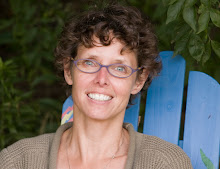
Jung and the Voice of the Soul
I just finished a remarkable, beautiful, and insightful book by Claire Dunne, entitled,
Carl Jung: Wounded Healer of the Soul (Parabola, NY, 2000). It left me wondering why I didn't learn more about Carl Jung in seminary, as I was taking all my pastoral care classes. Dozens of classes focused on different methodologies, diagnoses, emergencies, death and dying, sexuality, addictions, and more. They talked about what people need in terms of pastoral care (we all need nurture for our spirits) and how we could help facilitate dialog to help others uncover these pieces of themselves seeking integration and wholeness.
That's of course where my experience with writing and my interest in narrative came in--seeking to understand and name (and thereby begin the process of healing by shining light on the observed and formerly rejected pieces) the rejected prodigal in each of us. (This required the willingness for me to do this work with myself first, which has been the story of my last several years.)
I think Carl Jung has something important to offer both to pastoral care and to narrative approaches. He worked throughout his life to welcome out, understand, and communicate in a language of the soul that often set him at odds with a rational and scientific world; but his Persona #1 knew the language well--it was its only true voice.
Healing TV
The other day while I was working I had
Judging Amy on in the background. I was only paying half attention to it, but I like the show because the characters have heart (and she's a single mom, like me) and I like the mother-daughter relationship. I also like the fact that the main character is a strong, smart, professionally successful woman who hasn't had to trade that for her femininity, listening heart, or wisdom. She's a woman who is finding her way in her own world--not necessarily a man's world.
In this episode, Amy's mother had had some kind of catastrophic event. She was intubated in the hospital, unconscious (of course), and Amy was by her bedside. She began talking to her mother in a rational, everything's-going-to-be-okay voice. But then her control dissolved into confession--she told her mother she felt hopeless and panicked and on the verge of despair. She poured out all the feelings--in a wailing, child-like way--that I think most of my patients' families would have loved to have been able to express. She said, "You can't go yet, Mommy!" and then turned her prayer to God, pleading, "Please don't take her--please please please please please don't take her. I'm not ready!"
The emotional impact of this scene was amazing. I would have liked to have been able to capture that clip so I could show it to every grief group I've ever had; every family member who has lost (or is losing) a loved one; every person who has not yet gone through grief in their lives. This is what a healthy grieving human looks like, I want to say. Crying, pleading, demanding, hurting, begging, angry, sad, fearful--all of it. You may not think it's pretty. You may think it's not "grown-up" enough. But I happen to know that it's sacred. Sacred.
And the arms of God are already there, waiting for you to exhaust yourself enough to relax into them.


 RSS feed
RSS feed

